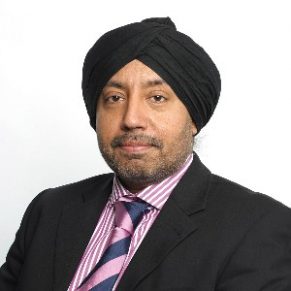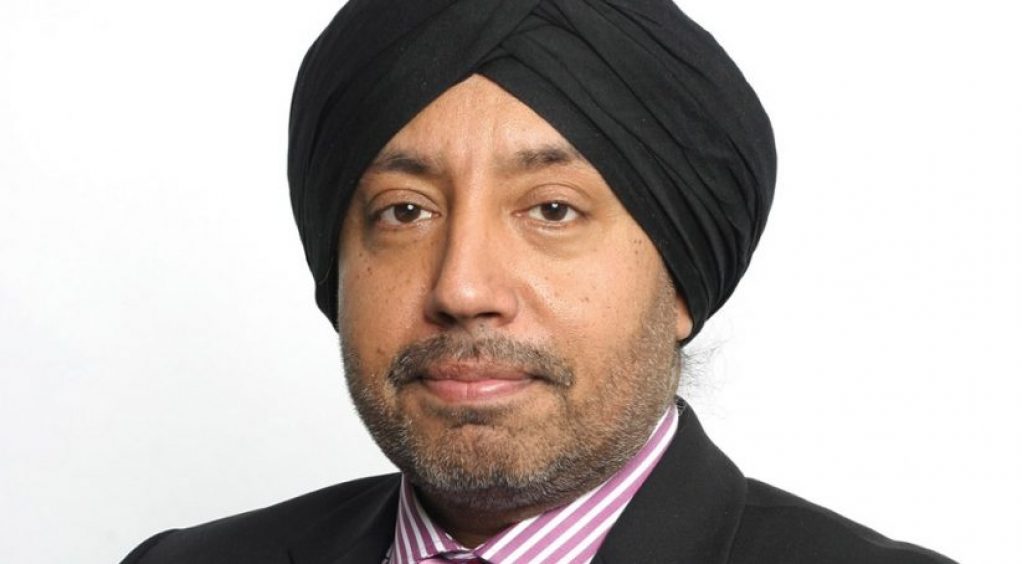Derbyshire care body names GP to key role
The new body being set up to coordinate health and social care across Derby and Derbyshire has named experienced local GP Dr Buk Dhadda as both a non-executive member and chair of one of its most important committees.
Dr Dhadda is the fifth person to be named as a non-executive member, and will chair the Quality and Performance Committee of the NHS Derby and Derbyshire Integrated Care Board (ICB). He brings a wealth of knowledge and expertise to the roles, as well as a deep understanding of the local community.
The Quality and Performance Committee will provide assurance to the ICB in relation to the quality, performance, safety, experience and outcomes of services it commissions. It will also ensure the ICB discharges its statutory duties in relation to the achievement of continuous quality improvement and safeguarding of vulnerable children and adults.
Derby-born and London-trained
Dr Dhadda was born and raised in Derby, and qualified at St Georges Hospital Medical School in London in 1995. He has worked as a local GP since 1999, and is currently a GP at Swadlincote Surgery.
He has held several leadership roles, having served as a GP Governing Body member of NHS Southern Derbyshire Clinical Commissioning Group (CCG) from 2012 until 2019 before being appointed to the Governing Body of NHS Derby and Derbyshire CCG.

Dr Dhadda has a specialist interest in diabetes, and supported the reorganisation of diabetes services in Derbyshire while clinical lead for diabetes for the NHS Southern Derbyshire CCG’s Clinical Lead.
Outstanding clinical leader
John MacDonald, Chair Designate of the ICB, said: “Dr Dhadda has played a key leadership role in health and care in Derbyshire over many years, and I’m delighted that he will be involved both as a non-executive member and as chair of the Quality and Performance Committee.
“It’s hard to overstate the importance of this particular committee in ensuring that the health and care services we commission are of the highest possible standard. Dr Dhadda is an outstanding clinical leader who has considerable expertise in this area.”
“Dr Dhadda joins four other non-executive members in Julian Comer, Margaret Gildea, Richard Wright and Sue Sunderland. The appointment of the NEMs is an important step in establishing the Derby and Derbyshire Integrated Care Board.”
ICB background
The NHS Derby and Derbyshire Integrated Care Board (ICB) is due to be established on 1 July 2022, and will be the NHS organisation responsible for planning to meet local health needs, allocating resources, ensuring services are in place to deliver against ambitions, and overseeing delivery of improved outcomes for their population. Tackling inequalities in health outcomes, the ICB will be part of the Joined Up Care Derbyshire Integrated Health and Care system, continuing to work with partners in local authority, the voluntary sector and others, helping the NHS to support broader social and economic development.
The Non-Executive Member role attracts a salary of £13,000-16,000 depending on time commitment and experience.
The next step for the ICB will be to recruit Executive Directors ahead of the Board likely being established in shadow form from March 2022, before being formally established on 1 July 2022, subject to Royal Assent of the Health and Social Care Bill, which is currently being reviewed by Parliament.
Other non-executive members
Sue Sunderland
Sue is an accountant who has worked for the Audit Commission and KPMG and holds a range of lay and non-executive roles with NHS Bassetlaw CCG, NHS Nottingham & Nottinghamshire CCG; the Office of the Police & Crime Commissioner and has also recently been appointed as a Non-Executive Director at Nottinghamshire Healthcare NHS Foundation Trust. Sue’s entire career has been in the public sector and she has a strong commitment to health equality and mental health issues. Sue will Chair the ICB’s Audit and Governance Committee. Sue lives in Matlock.
Richard Wright
Richard has been a Non-Executive Director at Derbyshire Healthcare NHS Foundation Trust since 2016. He is also Chair of the Finance Oversight Group for Joined Up Care Derbyshire. Richard is also Chair of the Sheffield University Technical College Multi Academy Trust; and a Board Member of Sheffield National Centre for Sport and Exercise Medicine. He was previously Executive Director of the Sheffield Chamber of Commerce and has a background in the private sector. Richard will Chair the ICB’s Finance and Estates Committee. Richard lives on the border of Derbyshire, Nottinghamshire and South Yorkshire.
Julian Corner
Julian has been Chief Executive of the charitable funder Lankelly Chase Foundation since 2011, where he has led its work to support organisations, networks and places to promote equity and justice through systemic change. Julian is also coming to the end of a successful term as Chair of Toynbee Hall, which works to tackle the causes and impacts of poverty. Julian will Chair two committees: the Strategic Population Health & Commissioning Committee and the Public Partnership Committee. Julian lives in Stanton-in-the- Peak, near Matlock.
Margaret Gildea
Margaret is an HR professional with 30 years’ experience at Rolls-Royce, culminating in being the company director of learning and development and divisional executive vice president of HR. Since leaving Rolls Royce in 2009, Margaret has run her own business helping organisations with major change programmes. She has been a Non-Executive Director with the Derbyshire Healthcare NHS Foundation Trust since 2016, helping to develop the ‘People First’ approach which has moved the Trust to a CQC rating of ‘Good’. Margaret will also Chair two committees: the Remuneration & Appointments Committee and People & Culture Committee. Margaret lives in Melbourne, South Derbyshire.
BACKGROUND
Health and Care Bill
- The Health and Care Bill 2021, which contains a series of measures to formally establish Integrated Care Systems (ICS’), is currently at Committee Stage receiving a detailed examination following its second reading.
- The Bill will put ICSs on a firm statutory footing, empowering them to better join up health and care, improve population health and reduce health inequalities.
- Each Integrated Care Board (ICB) will hold a substantial budget for commissioning high quality patient care and have the authority to establish performance arrangements to ensure this is delivered.
- A key element of preparing for legislation to take effect is confirming who would take up senior roles within each ICB.

